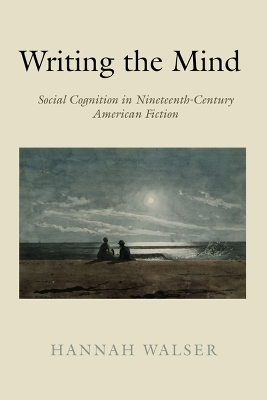
Writing the Mind
Social Cognition in Nineteenth-Century American Fiction
Seiten
2022
Stanford University Press (Verlag)
978-1-5036-3007-9 (ISBN)
Stanford University Press (Verlag)
978-1-5036-3007-9 (ISBN)
Novels are often said to help us understand how others think—especially when those others are profoundly different from us. When interpreting a character's behavior, readers are believed to make use of "Theory of Mind," the general human capacity to attribute mental states to other people. In many well-known nineteenth-century American novels, however, characters behave in ways that are opaque to readers, other characters, and even themselves, undermining efforts to explain their actions in terms of mental states like beliefs and intentions.
Writing the Mind dives into these unintelligible moments to map the weaknesses of Theory of Mind and explore alternative frameworks for interpreting behavior. Through readings of authors such as Charles Brockden Brown, Herman Melville, Martin Delany, Harriet Beecher Stowe, Charles Chesnutt, and Mark Twain, Hannah Walser explains how experimental models of cognition lead to some of the strangest formal features of canonical American texts. These authors' attempts to found social life on something other than mental states not only invite us to revise our assumptions about the centrality of mind reading and empathy to the novel as a form; they can also help us understand more contemporary concepts in social cognition, including gaslighting and learned helplessness, with more conceptual rigor and historical depth.
Writing the Mind dives into these unintelligible moments to map the weaknesses of Theory of Mind and explore alternative frameworks for interpreting behavior. Through readings of authors such as Charles Brockden Brown, Herman Melville, Martin Delany, Harriet Beecher Stowe, Charles Chesnutt, and Mark Twain, Hannah Walser explains how experimental models of cognition lead to some of the strangest formal features of canonical American texts. These authors' attempts to found social life on something other than mental states not only invite us to revise our assumptions about the centrality of mind reading and empathy to the novel as a form; they can also help us understand more contemporary concepts in social cognition, including gaslighting and learned helplessness, with more conceptual rigor and historical depth.
Hannah Walser received her PhD from Stanford University and is presently a Furman Academic Scholar at the New York University School of Law.
Introduction: Toward a Literary History of Cognition
1. Boundedness
2. Epistemic Reality
3. Causal Power
4. Responsibility
| Erscheinungsdatum | 21.06.2022 |
|---|---|
| Verlagsort | Palo Alto |
| Sprache | englisch |
| Maße | 152 x 229 mm |
| Themenwelt | Sachbuch/Ratgeber ► Geschichte / Politik ► Allgemeines / Lexika |
| Geisteswissenschaften ► Geschichte ► Regional- / Ländergeschichte | |
| Geisteswissenschaften ► Psychologie | |
| Geisteswissenschaften ► Sprach- / Literaturwissenschaft ► Anglistik / Amerikanistik | |
| Geisteswissenschaften ► Sprach- / Literaturwissenschaft ► Literaturgeschichte | |
| Geisteswissenschaften ► Sprach- / Literaturwissenschaft ► Literaturwissenschaft | |
| ISBN-10 | 1-5036-3007-2 / 1503630072 |
| ISBN-13 | 978-1-5036-3007-9 / 9781503630079 |
| Zustand | Neuware |
| Haben Sie eine Frage zum Produkt? |
Mehr entdecken
aus dem Bereich
aus dem Bereich
die Reise der Menschheit : zwischen Aufbruch und Scheitern
Buch | Softcover (2023)
Ullstein Taschenbuch Verlag
14,99 €


